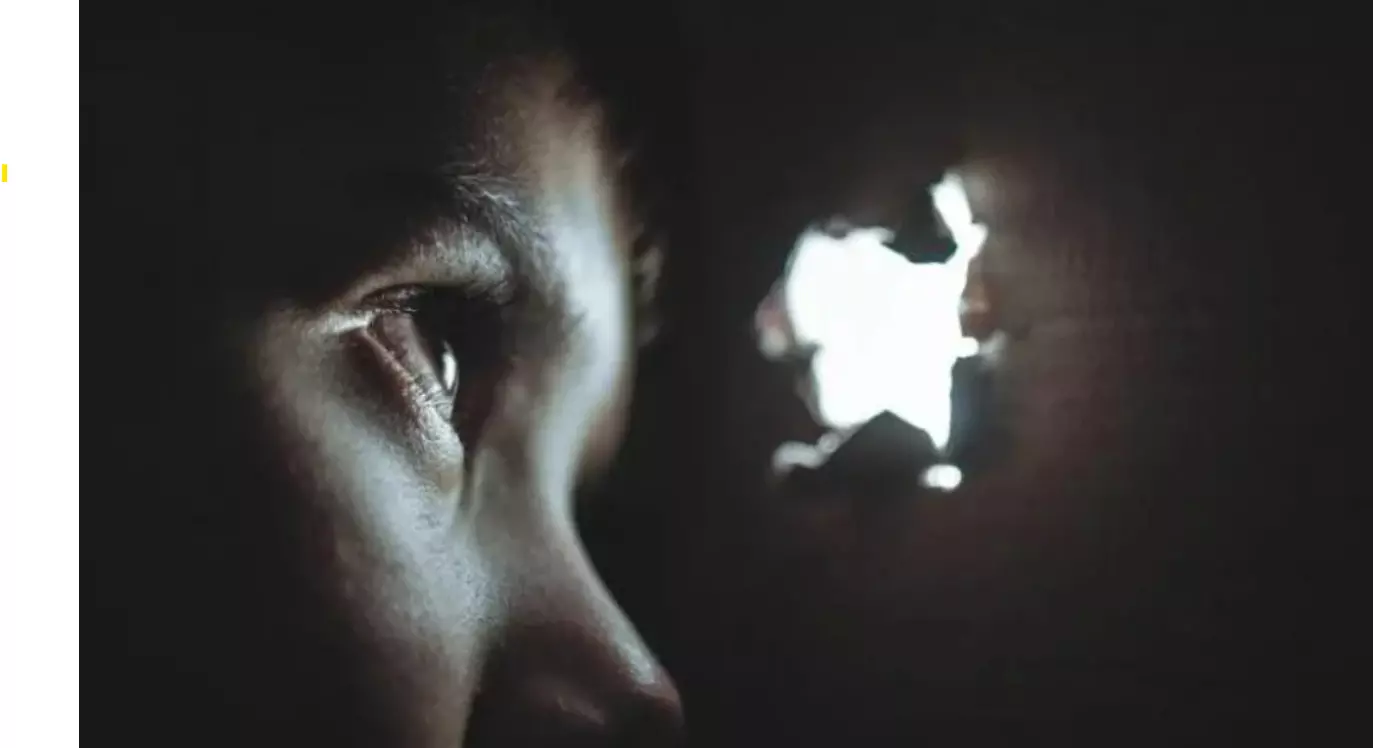A dark, cold abyss!
A 16-year-old strangling his nine-year-old neighbour to death to conceal his stealth triggers serious questions around the evolving youth behavior and parenting, and is a wakeup call for treating kids with compassion

A few days ago, a 16-year-old boy strangled his nine-year-old neighbour at a residential complex in Gurgaon and tried to set her body on fire.
Sixteen years old. Let that sink in. A time when most boys are busy with their Percy Jackson novels and Nintendo games. Not this one though. This youngster had run up huge debts due to an online gambling habit he’d developed. He hatched a plan to steal his neighbour’s jewellery and repay the loan he had taken from a friend. The mothers were friends so he knew where the jewellery was kept. The diabolic plan would have been successful if it hadn’t been for the neighbour’s daughter. She caught him swiping the jewels and threatened to call her mother. So he strangled her. And if that wasn’t enough, he tried to set her body on fire.
What makes children go astray? Is it nature or nurture? A seed of evil hardwired into their DNA waiting for the right moment to manifest itself? The result of faulty genes – a generational curse? Or is it the company they keep, the neglect from near and dear ones that pushes them over the edge? Is there one definitive moment or is it a series of small incidents that lead the kid to snap and cross over to the dark side? Is it possible for a parent to sense trouble and swing into action before it spirals into something untoward?
Online supervision, keeping open channels of communication – these are things that are drilled into us when we raise kids. There is no one-size fits all as far as parenting is concerned. One simply learns along the way. As parents, one tries one’s utmost to make sure that our offspring thrive. Often we end up indulging them, to make up for weaknesses of our own. I’ve been guilty of spoiling my daughter like most parents. Buy her that Barbie that she really did not need. Or the sparkly pair of shoes.
But can a parent’s weakness or lack of supervision turn a child into a criminal?
When I was growing up, we lived next door to a troubled teenager. When his mother left his abusive father, his grandparents took him and his younger brother in. They were kindly folks and did the best they could to provide a loving home for the two boys. But the teenager forged his grandfather’s signature on a cheque once and set our toys on fire after a fight. I’m glad my mother never left me alone at home. I’m not sure how he would have acted out if he was under duress.
I cannot imagine what the girl’s parents are going through. But I can’t help feeling sorry for the boy’s parents either. What makes it worse is the fact that they were friends with the victim’s family. A feeling of betrayal on both sides. That the young lad did this to someone so close is unforgiveable. He must have been under tremendous pressure. He had betting dues, a loan to repay, his grades were slipping, his father was unhappy. Not that any of it is an excuse for murder.
The newspapers report that the boy has been packed off to a juvenile home. I fear that story may not end well. Correctional facilities in our country are not the best of places for vulnerable, flawed youngsters. The Asian Centre for Human Rights has described India’s observation homes as “hellholes” because of the sexual and physical abuse children are subjected to and the inhumane conditions of living.
They aren’t wrong. Look at what happened to Akash Yadav. He shot at a classmate in school with a pistol he stole from his father. The classmate died and he was sent to a juvenile home where he morphed into a dreaded gangster in Haryana. He’s twenty six years old now, in and out of jails, with a rap sheet that would put many small-time thugs to shame. In the ‘90s, Sudipa Pal had conspired with her tutor and murdered her entire family on the outskirts of Kolkata. Not even her elderly grandparents were spared. Since she was only fifteen years old at the time, she was sent to a correctional facility where she ended up marrying another inmate. Sajal Barui was a teenager when he murdered his father, stepmother and stepbrother with a few of his friends and tried to pass it off as a robbery gone wrong. He was sent to a correctional facility, he escaped and turned to a life of crime.
I pray there is a better ending to this boy’s story. One where he is treated with kindness and empathy and manages to find his way back again. What he did was inexcusable but that doesn’t make him a lost cause. With the right kind of support and counselling, he might still have a chance. There is no bringing back the little girl but it is still possible to save him before it’s too late.
Views expressed are personal



